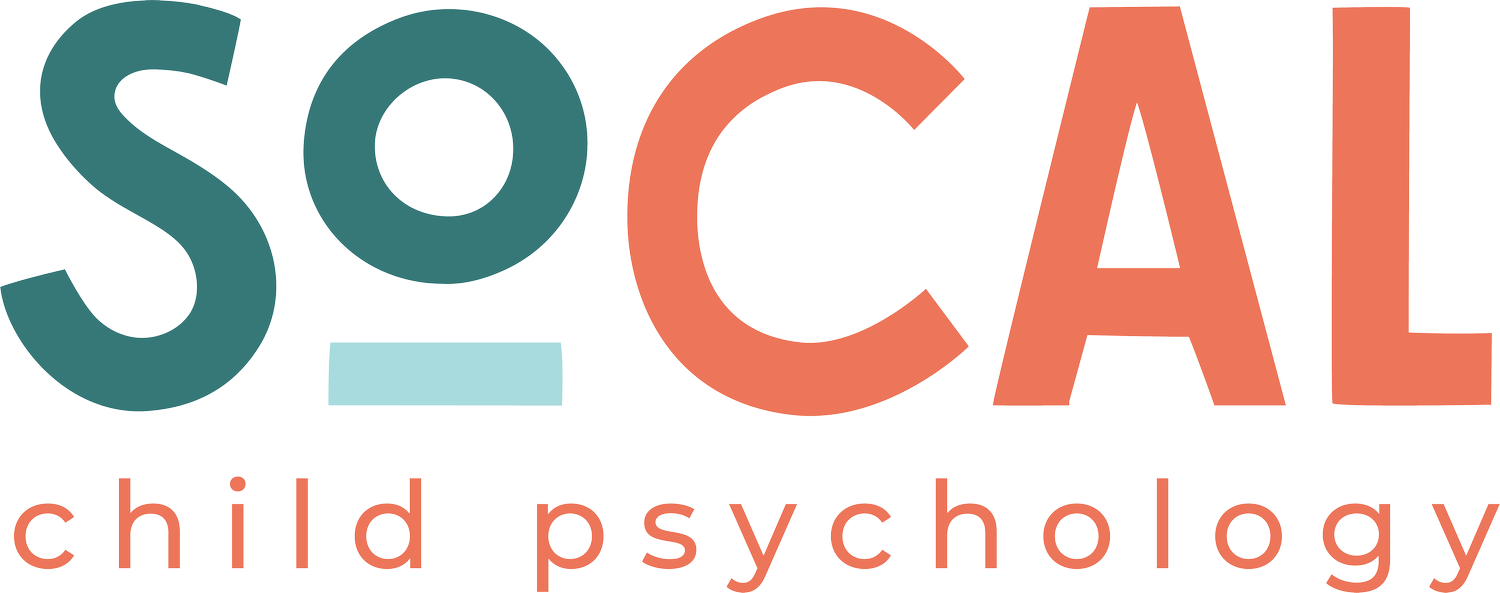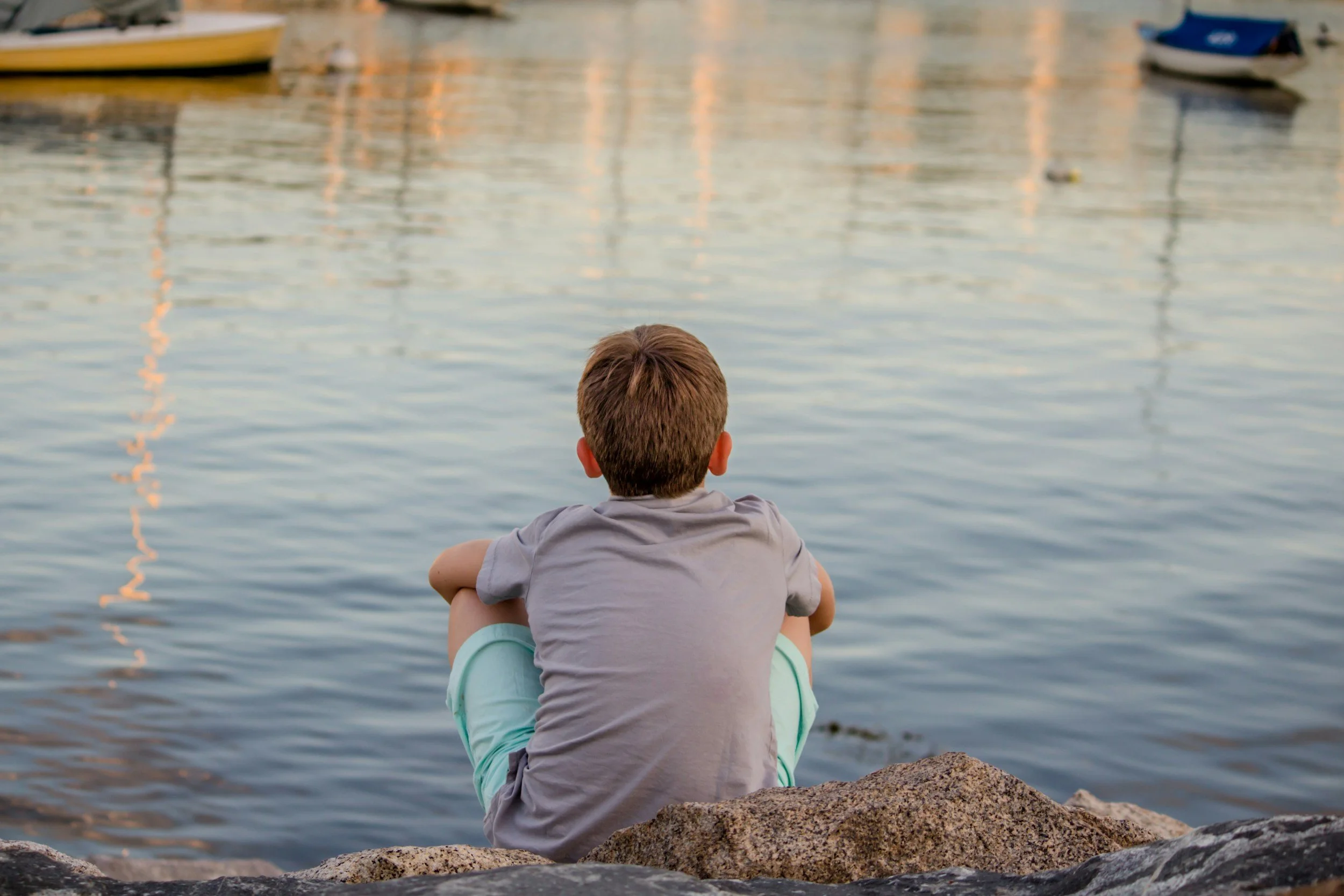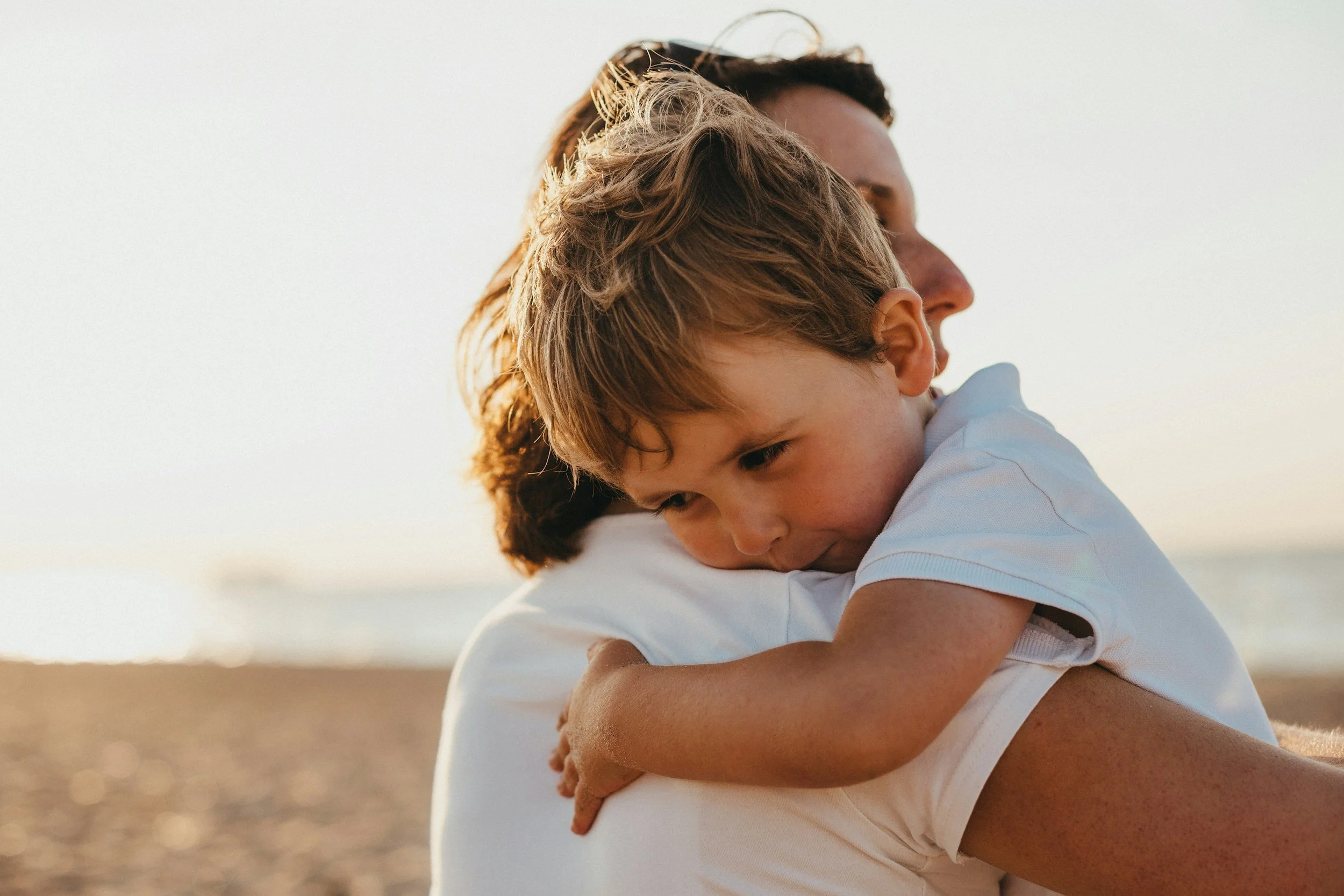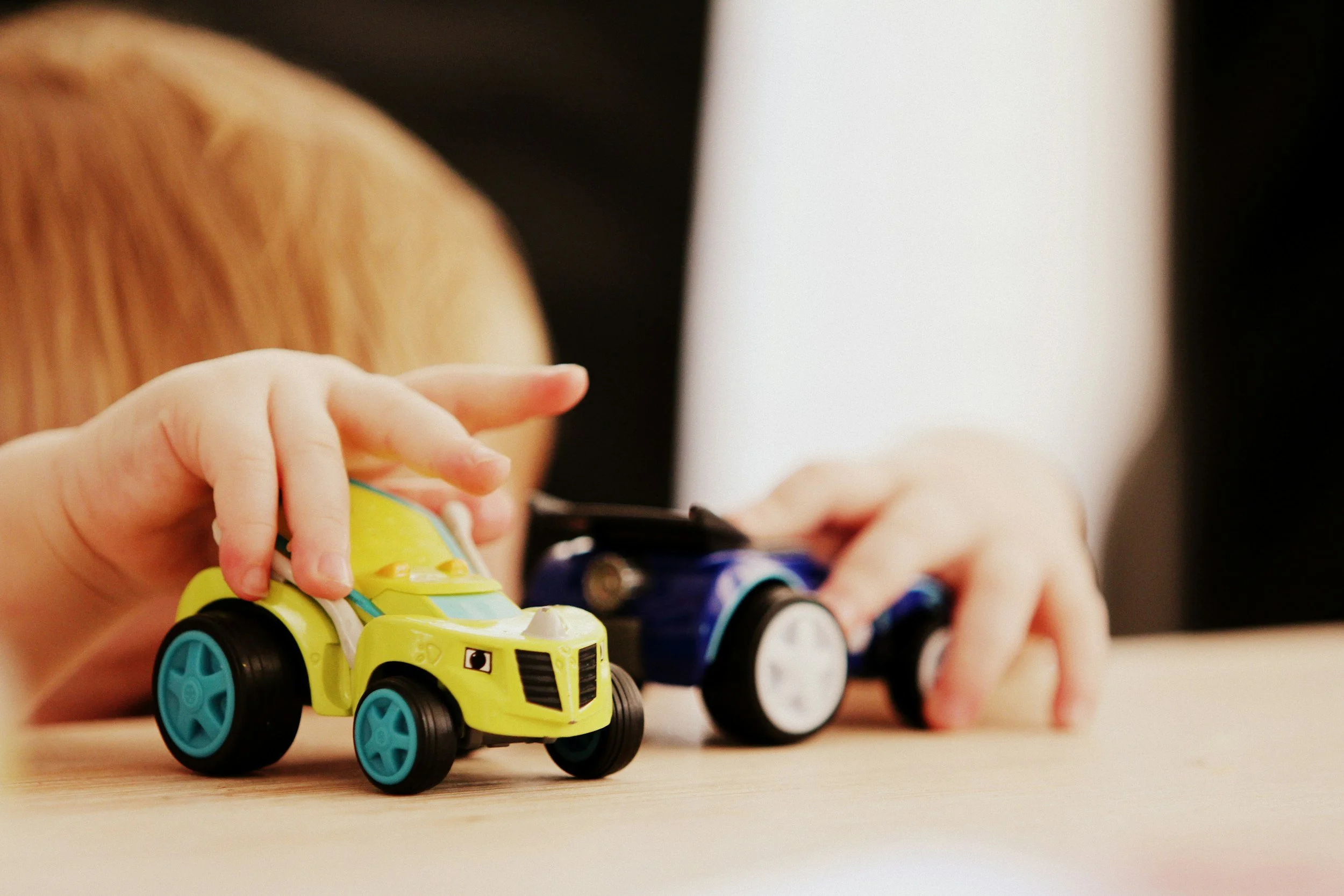
Child Anxiety Therapy in La Jolla & San Diego
Is your child struggling with anxiety?
Does your child have difficulty separating from you, even for short periods?
Do bedtime battles and sleep troubles dominate your evenings, with your child expressing fears about being alone in their room?
Have you noticed your child becoming increasingly clingy, having frequent meltdowns, or avoiding activities they used to enjoy?
As a parent, watching your young child wrestle with anxiety can feel overwhelming and heartbreaking…
You may have observed that your once-confident child now hesitates to try new things, clings to familiar routines, or becomes distressed when faced with everyday situations like going to school or attending a playdate.
The physical symptoms—stomachaches before school, trouble sleeping, or frequent tears—can leave you feeling unsure about how to help your little one feel safe and secure again.
Your Child May Show Anxiety Differently Than Adults
Unlike teenagers or adults who can articulate their worries, young children often express anxiety through their behavior and physical symptoms.
Your child might complain of frequent stomachaches or headaches, especially before school or social activities, with no apparent medical cause.
Perhaps they've become extremely resistant to trying new foods, visiting new places, or meeting new people.
They may have developed specific fears about things like dogs, loud noises, or being away from home. Some children express anxiety through increased clinginess, following parents from room to room, or needing constant reassurance about safety and schedules.
Sleep disturbances are particularly common, with children experiencing difficulty falling asleep alone, frequent nightmares, or wanting to sleep in their parents' bed.
These behaviors often intensify during times of transition or stress, leaving both child and parents feeling exhausted and frustrated.
Childhood anxiety often centers around safety and separation
For young children, anxiety frequently revolves around fundamental concerns about safety and attachment.
Separation anxiety is one of the most common presentations, where children become extremely distressed when separated from their primary caregivers, even for brief periods or in familiar environments like school or daycare.
Many anxious children become preoccupied with "what if" scenarios about harm coming to themselves or their loved ones.
They may ask repetitive questions about family safety, worry excessively about parents being late for pickup, or become upset about changes to familiar routines that provide them with a sense of security and predictability.
Some children develop specific phobias that seem to come out of nowhere—sudden fears of water, elevators, or certain animals that significantly impact daily functioning.
Others may exhibit perfectionist tendencies early on, becoming frustrated or upset when they can't complete tasks exactly right or when things don't go according to plan.
Well-meaning parent responses can actually reinforce anxiety
When we see our children distressed, our natural instinct is to comfort and protect them. However, some of our most caring responses can unintentionally maintain or increase anxiety over time.
Constantly reassuring a worried child, allowing them to avoid feared situations, or accommodating anxiety by changing family routines can provide immediate relief but may prevent your child from developing their own coping skills.
For instance, when a child refuses to attend a birthday party due to anxiety, it might seem kind to let them stay home. However, this avoidance prevents them from learning that they can handle uncomfortable feelings and that feared situations are often manageable.
Similarly, providing endless reassurance about safety can inadvertently teach children that their worried thoughts require constant external validation rather than helping them develop internal confidence.
In therapy, both you and your child will learn strategies to respond to anxiety in ways that build resilience and confidence rather than maintaining fearful patterns.
Therapy provides tools for both you and your child
If your child's anxiety is interfering with daily activities, sleep, school attendance, or family functioning, professional support can make a significant difference.
Our specialized child and teen therapists in San Diego recognize…
Young children need different strategies than teenagers or adults.
Our first priority is helping your child feel comfortable and safe in the therapy environment. Through play, art, and age-appropriate activities, we build rapport while assessing how anxiety shows up in your child's daily life.
In ongoing sessions, we help your child understand anxiety in simple, non-scary terms—often describing it as their "worry brain" trying to protect them, even when protection isn't needed.
Through storytelling, role-playing, and hands-on activities, children learn to identify anxiety in their body and practice coping strategies like deep breathing, progressive muscle relaxation, and positive self-talk.
Parent involvement is crucial in child anxiety treatment.
We provide regular consultation to help you understand your child's specific anxiety patterns.
You’ll learn how to respond in ways that promote bravery rather than avoidance. You'll discover how to validate your child's feelings while encouraging them to face fears, how to gradually reduce accommodations, and how to implement supportive routines at home.
Evidence-Based Approaches Tailored for Young Children
Proven Techniques
Our child anxiety therapy incorporates proven techniques adapted for younger developmental stages. Cognitive Behavioral Therapy (CBT) principles are taught through games, stories, and visual aids that help children identify worried thoughts and learn more balanced thinking patterns.
Parent Support
Parent-Child Interaction Therapy (PCIT) principles may be incorporated to help strengthen the parent-child relationship while reducing anxiety-maintaining behaviors. We also provide psychoeducation about child development and anxiety to help parents understand what's normal versus concerning at different ages.
Engaging Activities
We frequently use play therapy techniques, art therapy, and therapeutic books to help children process and express their emotions. Mindfulness and relaxation skills are taught through child-friendly exercises like "balloon breathing," body scans with stuffed animals, and movement-based activities.
Tools For Their Future
The wonderful news is that children are naturally resilient and often respond quickly to appropriate intervention. With consistent support and the right tools, most children can learn to manage anxiety effectively and return to age-appropriate activities and developmental milestones.
Unsure if Anxiety Therapy Is Right for Your Child?
-
Children as young as 3-4 years old can benefit from play-based anxiety therapy, especially when anxiety is significantly impacting their daily functioning, sleep, or family life.
At SoCal Child Psychology, we specialize in developmentally appropriate interventions that meet children where they are emotionally and cognitively.
-
We present therapy to children as a place to learn new skills and play fun games, similar to how they might learn new skills in school or sports.
We emphasize that everyone needs help sometimes and that coming to therapy shows they're brave and working to feel better. Most children find therapy sessions enjoyable and look forward to their time with their counselor.
-
Parent involvement is essential in child anxiety therapy. Unlike adult therapy, successful treatment of childhood anxiety requires close collaboration with caregivers who can reinforce therapeutic strategies at home.
We provide regular parent consultation, teach you specific techniques for supporting your child, and ensure you feel confident in helping your child continue their progress between sessions.








